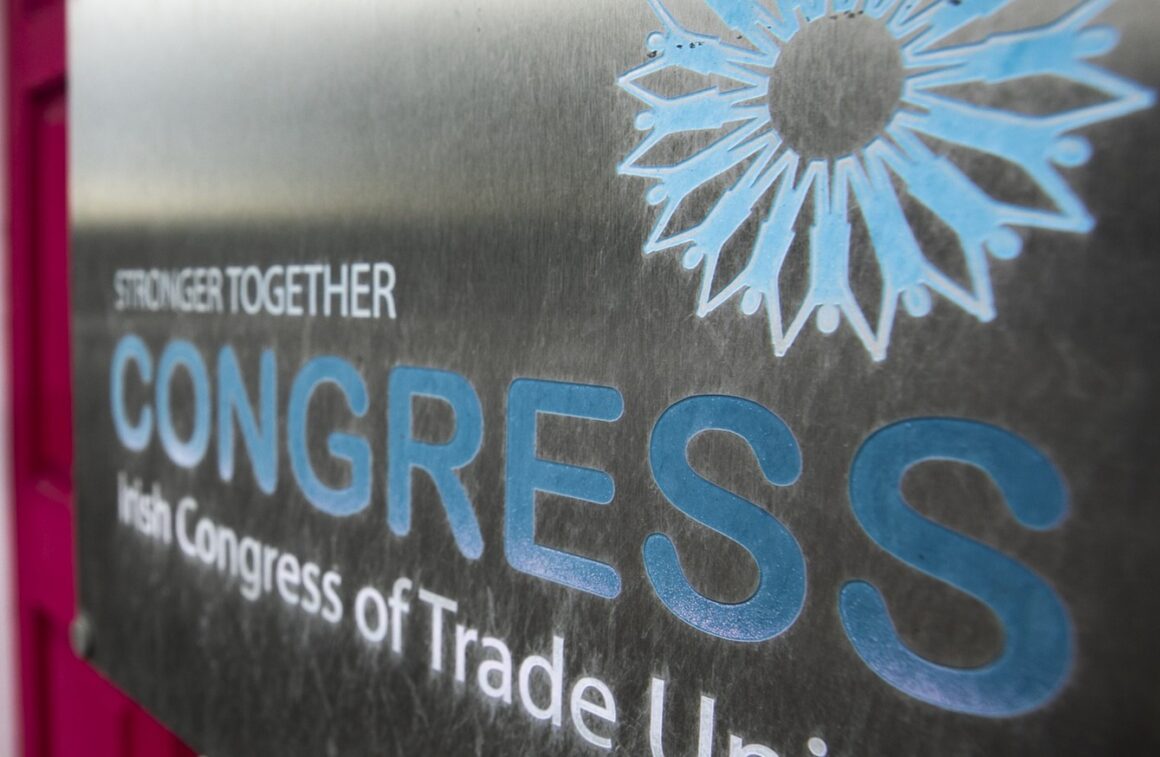By Mark Johnson
At the time of writing the government has negotiated a pay agreement with the ICTU (Irish Congress of Trade Unions) public services committee. The deal is currently with the executives of the respective unions who will recommend their members to vote for or reject it.
The negotiated deal is for an additional 3% in 2022 on top of the 1% currently agreed under the “Building Momentum Agreement”, and a 3.5% increase in 2023. Currently, inflation is close to 10% and could reach 15% by the end of the year, meaning this deal represents a de facto and a significant pay cut. Worse still is tying workers’ hands next year while energy, fuel, rent, food prices etc. are soaring.
A bad lead
According to the Central Statistics Office’s ‘Labour Force Survey’ union membership stands at 516,000 members in Ireland. How could the largest force in society, and potentially the strongest, negotiate such a poor deal?
In the children’s nursery rhyme the grand old Duke of York marched his ten thousand men to the top of a hill and down again in a futile strategy. Credit where credit is due, however, at least the Duke of York mobilised his forces. Unfortunately, for public sector workers, and workers generally, the majority of the leadership in ICTU are deeply schooled in the methods of social partnership, seeing themselves as states people, being careful not to offend the billionaire-owned press, or put forward an alternative to the ideas of the right-wing parties. This timid approach leads to a fear of mobilising the true power of the trade union movement and building powerful active rank and file who would challenge this approach.
Kevin Callinan, President of ICTU and Fórsa General Secretary said he believed “the outcome of this long process was the best that could currently be achieved through negotiations.”
Negotiation with no strategy
What the six-month timeline shows is this:
In early March 2022, due to rising inflation ICTU triggered pay negotiations. The government didn’t respond for two months until it entered into talks in May. An offer of just 2.5% for 2022 was rejected by unions on 17 June. ICTU began to plan coordinated balloting but said it was open to more talks “even at short notice”. Between 18 June and mid-August, nearly two months, the government had not called unions back to talks, with ballots planned for after the budget. Finally, on 29 August a new deal was negotiated and ballots for industrial action were called off to allow a vote on the deal.
What was clearly missing during this period was any industrial strategy by the trade union leadership that could empower members and bring maximum pressure on the government to win an inflation-busting pay deal.
A fighting leadership, on the other hand, would have done something like the following:
Called town hall meetings in March in all workplaces, bringing workers together to discuss the best tactics and encouraging the forming of local ballot / action committees.
Set the date for a nationwide lunchtime protest on May Day to build confidence, consolidate each workplace, build pressure, and recruit to build union density.
Followed this up with a national protest in July or August could have been called, to bring maximum pressure on the government, making common cause with all those affected by the cost of living in our communities, including private sector workers struggling with low pay.
Going into pay talks with the momentum of a campaign of protest and agitation, being strike-ready with members engaged in each workplace, would have put the unions in a far stronger position, and meant any negotiations would deliver a significantly better deal than the one on offer.
No vote now crucial
The media and the trade union leadership are likely to try to sell this deal as the best compromise that could have been achieved, particularly as a deal that protects the lowest paid. But it is precisely the lowest paid workers who need an inflation-busting pay deal. This is still a pay cut in real terms for those workers, and will be wiped out by the cost of living. Low-paid workers need a No vote on this deal, and not to be tied into a second pay cut next year also.
All union and non-union workers in the public sector need to get organised now to defeat this deal. We need to come together to fight for a militant strategy. The trade union leadership is not strong on this deal and is susceptible to pressure from members. Linked with a no vote on this deal we need ballots on industrial action to demand double-digit, inflation-busting pay deals. This can only be won through a campaign of coordinated industrial action and mobilising workers’ power.
The lesson from Britain this year shows that when a lead is given workers can win and can inspire others to fight. Mick Lynch of the RMT, for its militant stand, has become a household name, inspiring many other workers to follow their example. Google searches in the UK asking “how to join a union” have increased hundreds-fold, #GeneralStrike was trending on Twitter, and tens of thousands in working-class communities are protesting under the ‘Enough Is Enough’ campaign.
Reclaiming the trade unions into a fighting movement in Ireland with solidarity at its core would transform the situation and is a key task.












